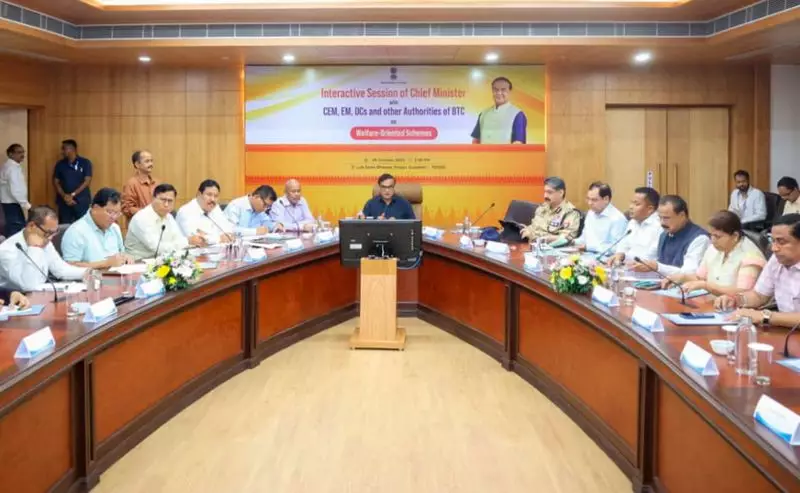
In a dramatic escalation of political tensions, Assam Chief Minister Himanta Biswa Sarma has declared that treason cases will be filed against Congress leaders for their controversial act of singing the Bangladeshi national anthem at a public event. The announcement has sent shockwaves through Indian political circles and raised serious questions about national loyalty and political propriety.
Political Storm Erupts Over Anthem Controversy
The controversy erupted when Congress leaders, during a party rally, chose to sing 'Amar Sonar Bangla,' the national anthem of Bangladesh. This move immediately drew sharp criticism from ruling party leaders and sparked widespread debate about the appropriateness of such actions in the current political climate.
CM Sarma's Strong Stance
Chief Minister Himanta Biswa Sarma didn't mince words when addressing the incident. "This is not just a political mistake; this is an act that questions their loyalty to the nation," Sarma stated emphatically. The Assam CM confirmed that legal proceedings would be initiated under stringent sections of the law typically reserved for cases involving threats to national security.
Congress Defends Its Position
Congress leaders have pushed back against the allegations, arguing that their action was meant to celebrate the cultural and historical ties between India and Bangladesh. They maintain that singing the neighboring country's anthem was a gesture of friendship and regional solidarity rather than any form of disloyalty to India.
Legal Implications and Public Reaction
The proposed treason case represents one of the most serious legal actions against political opponents in recent memory. Legal experts are divided on whether the act genuinely constitutes treason or sedition, with some calling it an overreach while others support the government's tough stance.
Public reaction has been equally polarized, with social media platforms buzzing with heated debates. Supporters of the government have hailed the decision as necessary to protect national integrity, while opposition supporters see it as political vendetta and an attempt to suppress dissent.
Historical Context and Diplomatic Sensitivity
The incident comes at a sensitive time in India-Bangladesh relations, with both nations working to maintain strong diplomatic ties. Historical connections between Bangladesh's liberation struggle and Indian support have always made the relationship particularly nuanced, adding layers of complexity to the current controversy.
As the legal process moves forward, this case is likely to set significant precedents for how such cross-cultural political expressions are treated under Indian law, making it a landmark situation that could influence political discourse for years to come.





